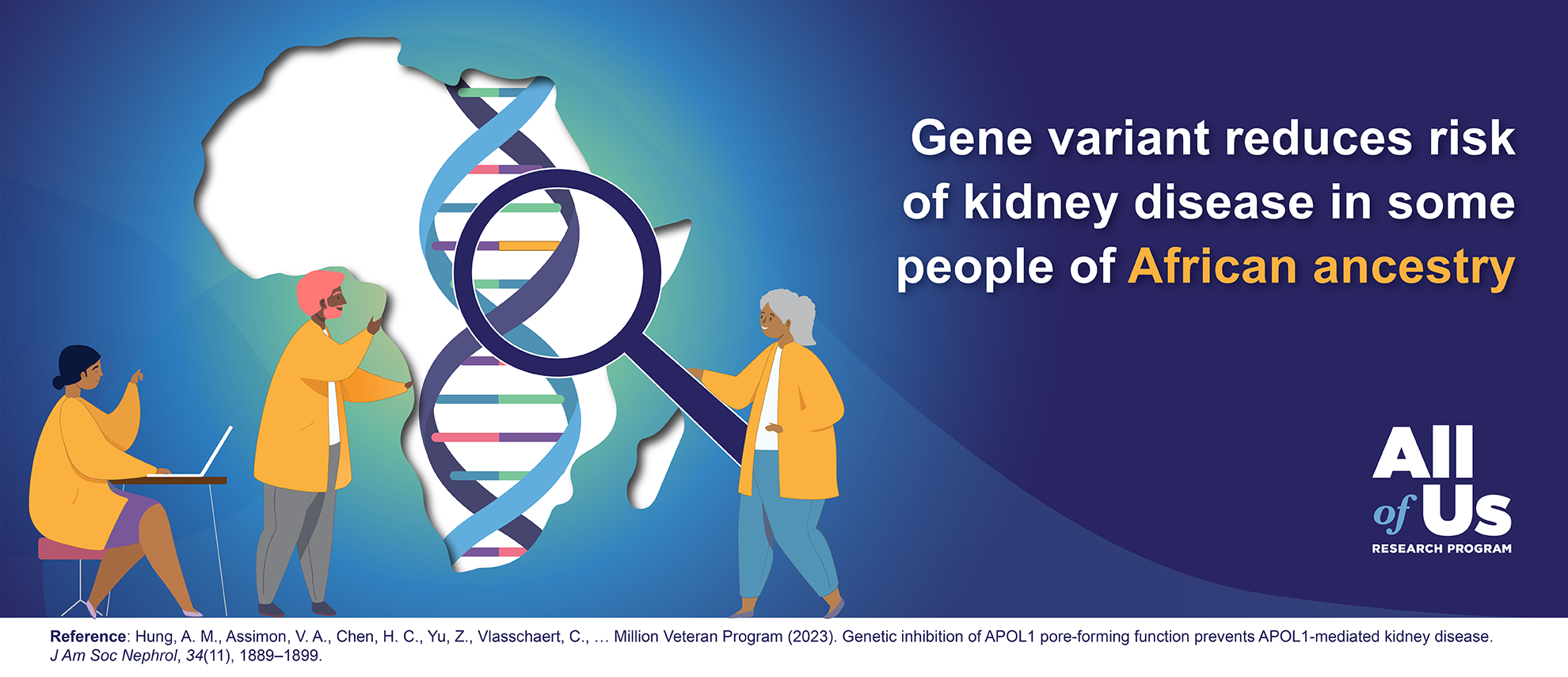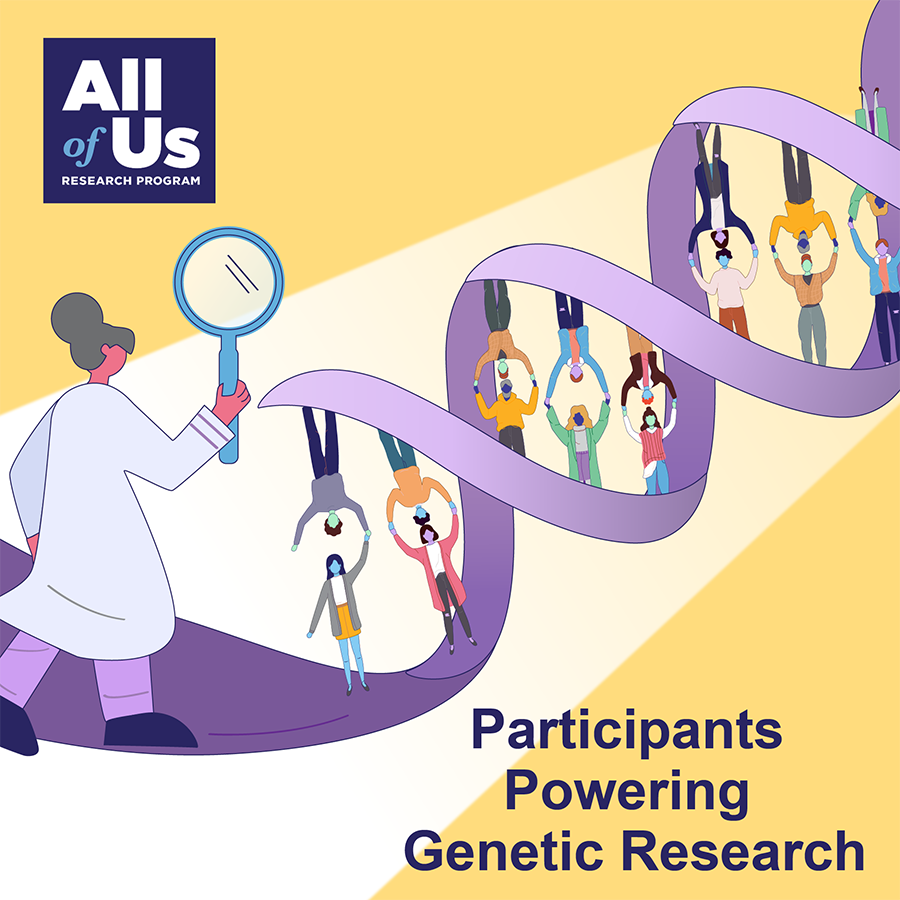
Key points
- Certain genetic variants in a gene called apolipoprotein L1 (APOL1) may cause kidney disease.
- These variants are more common in people of African ancestry.
- Researchers confirmed that another APOL1 variant reduces the risk of kidney disease in people who also have the variants linked to kidney disease.
A genetic variant is a change to the DNA sequence of a gene. Some genetic variants can cause health problems. But other variants can be helpful.
Researchers found that different variants in the same gene have very different effects on the kidneys.
People with certain genetic variants in the APOL1 gene are more likely to develop kidney disease than other people are. But researchers found a different APOL1 variant that blocked the effect of these disease-related variants. The additional variant reduced the risk of kidney disease in high-risk individuals.
The group published their results in the Journal of the American Society of Nephrology.
APOL1 and Kidney Health
People of African ancestry are more likely to develop kidney disease than most people are. One reason is because they are more likely to have certain APOL1 variants that are linked to kidney disease.
Researchers wondered if other APOL1 variants could decrease the risk of kidney disease in people who have the disease-related APOL1 variants. To answer this question, they studied health records, genetic data, and demographic data from the Million Veteran Program. They looked at information from nearly 121,500 Million Veteran Program participants of African ancestry.
The group found a variant in the APOL1 gene that blocked the harmful effects of the disease-related variants. When people have the disease-related variants and the protective variant, they are less likely to get kidney disease. Their chances of developing kidney disease are similar to those of people who do not have the disease-related variants.
To confirm this finding, the researchers studied data from the All of Us Research Program and the Vanderbilt University biobank. They looked at genomic and electronic health record data from more than 14,700 All of Us participants and nearly 14,400 Vanderbilt participants. All of the participants were of African ancestry.
The researchers found the same results. Having the protective APOL1 variant reduced the likelihood of kidney disease in people with the disease-related variants.
APOL1 Variants Are Not All Bad
The APOL1 variants linked to kidney disease can actually be good, too. They help protect people from getting African sleeping sickness. This condition is spread through bites from a fly that is common in many parts of Africa. That is why the variants are more common in people of African ancestry.
Having these variants is helpful to people who might get African sleeping sickness. But in regions where the fly is not common, the variants are not a help and can lead to kidney disease.
Using Large Databases to Study Genes
Studying more than one database helps overcome the drawbacks each one has on its own. For example, the Million Veteran Program is mostly men. All of Us and the Vanderbilt University biobank are more diverse but are also smaller. A result based on one small database may not be as believable on its own. But finding the same result across all three databases makes the result strong.
This study supports more in-depth genetic screening for kidney disease to better understand how to care for each individual.
The study also highlights a potential new way to protect against or treat kidney disease. Medicines that work similarly to the protective genetic variant are in early studies for other conditions. They could be promising treatments for kidney disease in the future.
Interested in All of Us?
- Read more research highlights.
- Learn about participation in the program.
Conduct research with All of Us
- Learn about opportunities for researchers.
- Find funding to support research using All of Us data.
- See more research projects made possible by All of Us data and tools.


